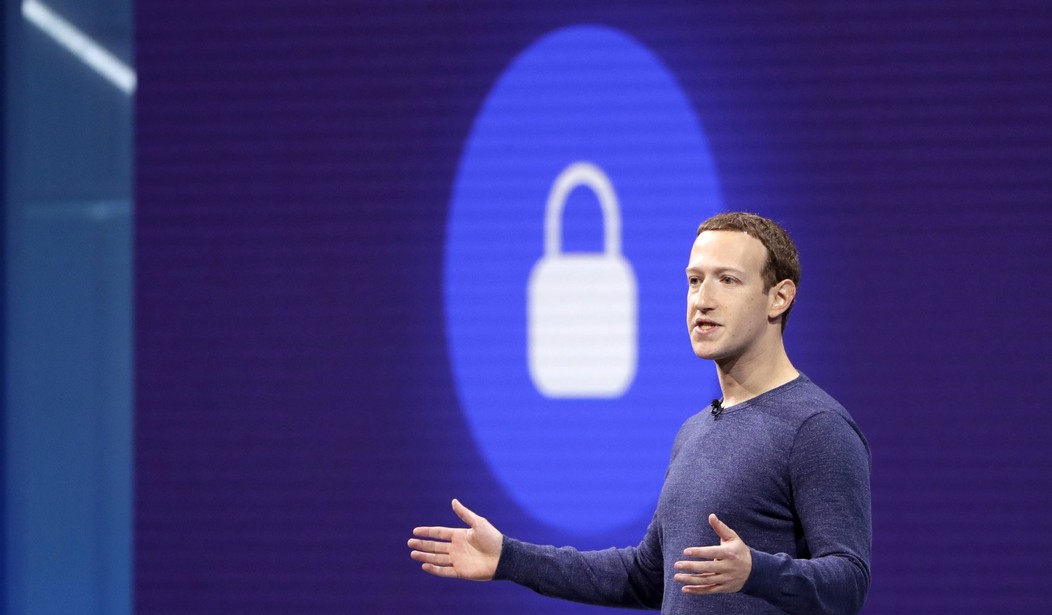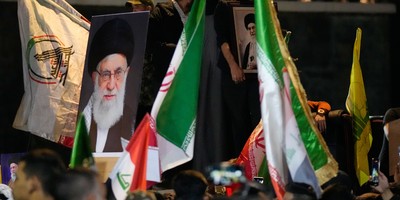Have you ever wondered why your social media post was taken down or censored? Of course, you might quickly blame Big Tech and its ever-changing policies that sometimes border on the absurd. But, in reality, a much bigger organization often dictates censorship -- the American federal government.
In a shocking reveal on the Joe Rogan Experience podcast, Meta CEO Mark Zuckerberg told millions of viewers that the FBI had asked Facebook, during the heat of the 2020 election race, to censor the New York Post’s Hunter Biden laptop story, suspecting it was Russian disinformation.
But the FBI's role may be just the tip of the iceberg.
For all of its flaws, the FBI at least is bound by law to require a law enforcement or counterintelligence basis for engaging with tech companies on social media. So there are only so many stories, or news cycles, that can be systematically subjected to government pressure from the FBI.
But it's not only the FBI encouraging Big Tech to censor free speech. You might not know that a relatively new government entity is involved in "countering disinformation" and has few restrictions on how it operates. And since 2019, it has been using your taxpayer dollars to limit your ability to freely express your politics and views on social media.
That entity is the Department of Homeland Security (DHS). And more specifically, an obscure government agency that was newly created by an act of Congress in November 2018, which goes by its acronym CISA (“Cybersecurity Infrastructure Security Agency”).
Recommended
As their YouTube channel shows, the agency explicitly coordinates with the private sector, academia, and the media on what posts and narratives to pressure tech companies to ban from the Internet. These activities are supposedly intended to stop social media users from "undermining public trust in government institutions." In practice, this means that the government now has the power to prevent citizens from airing their grievances online.
How did this unprecedented government overreach into our online freedom of expression happen?
Before the Trump era, Big Tech functioned mostly independently to moderate its online communities. After CISA came along, the agency's mission continuously evolved until it began serving as a sort of "Ministry of Truth."
CISA acquired its role in countering domestic "disinformation" through a series of definition changes that expanded its original charter.
First, CISA's “cybersecurity” mandate turned into a “cybercensorship” mandate, with few in the general public aware of the agency’s radical shift in scope and power. However, this move was initially limited to only targeting "foreign disinformation."
Next, CISA's “disinformation” efforts were redirected from targeting primarily foreign-based to primarily domestic-based threats.
Finally, CISA interpreted “cyber threats” and “critical infrastructure” beyond their hard physical meaning to encompass social media misinformation discussing nearly every key aspect of American life and society.
CISA now appears to have carte blanche to do something no authority in the US government has done before: take government action against lawful speech by US citizens, without them needing first to be suspected of a crime.
CISA is likely censoring domestic voices on social media in ways we have yet to understand. So if you're troubled by what the CEO of Facebook said on the most popular podcast in the world, you should probably be extremely concerned about CISA and perhaps other parts of the sprawling federal government that are playing a similar role.
For example, in the heat of the 2020 election, there is strong evidence that DHS worked directly with the private sector to coordinate the censorship of hundreds of social media posts and trending online narratives.
As we approach the next election season, we need to think about holding our leaders accountable for their public decisions -- specifically government overreach happening in America through the Administrative State.
If the First Amendment is to survive in America, the first place its protectors would be wise to mount its defense is in dismantling the domestic censorship industry being financed and directed by the US government.
Mike Benz is the Executive Director of the Foundation for Freedom Online. Previously, Mr. Benz served as Deputy Assistant Secretary for International Communications and Information Technology at the U.S. Department of State. Follow him on Twitter @FFO_Freedom.
























Join the conversation as a VIP Member